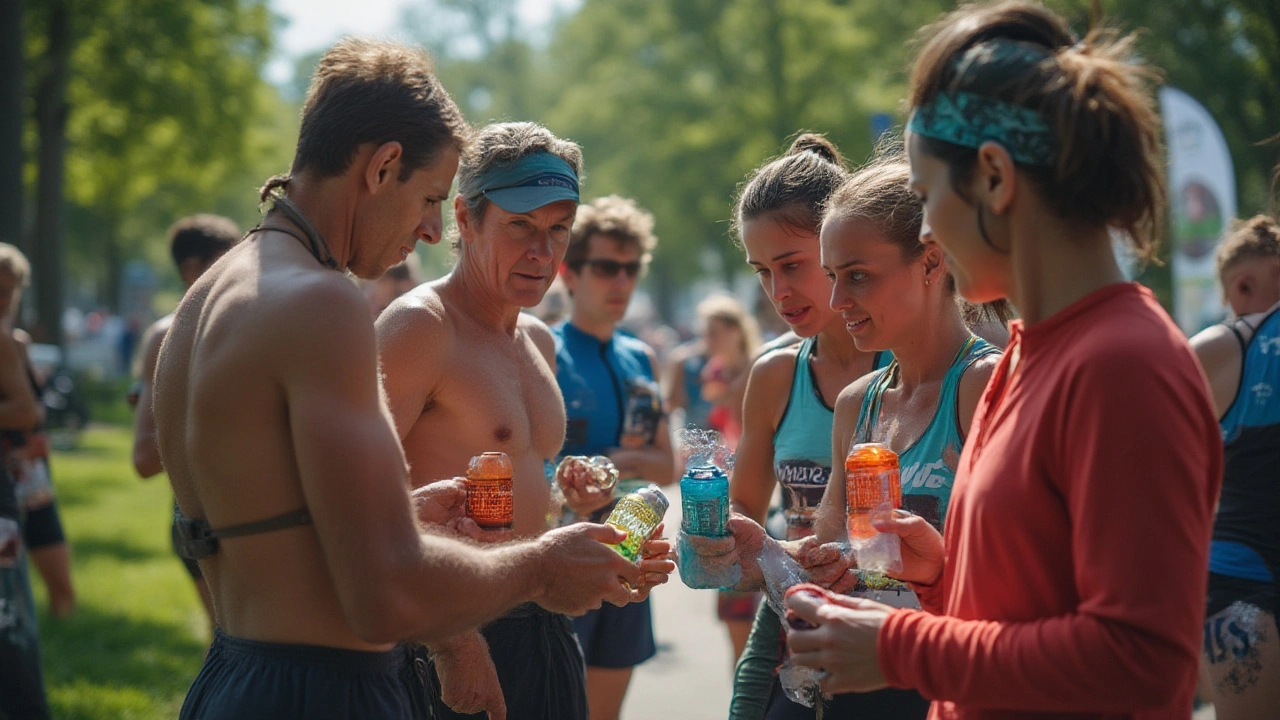Endurance Athletes: Real‑World Health Tips and Safe Supplement Guidance
If you spend hours on the bike, run long distances, or swim nonstop, you know your body runs on a fine balance of fuel, fluids, and recovery. The biggest mistake many endurance athletes make is guessing what works instead of using proven, safe strategies. Below you’ll find straight‑forward advice you can apply today—no jargon, just what matters.
Fueling Your Long Sessions
Carb intake isn’t a mystery. Aim for 30–60 grams of carbohydrates per hour once you’re past the 90‑minute mark. Simple options like a banana, a sports drink, or a small energy gel do the job. Pair carbs with a little protein (like a handful of nuts) if you’re training for more than two hours; this helps keep muscle breakdown low.
Hydration works the same way: drink enough to replace sweat loss but avoid over‑drinking. A rule of thumb is 500 ml of fluid per hour, adjusting for heat and sweat rate. Test your sweat rate by weighing yourself before and after a run—lose 1 kg? Replace roughly 1 liter of fluid.
Supplements and Medications: What’s Safe?
Many athletes reach for popular supplements such as caffeine, beetroot juice, or creatine. These are generally safe when you stick to recommended doses: 3 mg of caffeine per kilogram of body weight, 6‑8 mmol of nitrate from beetroot, and 3–5 g of creatine per day. Never combine multiple high‑stimulant products; the heart can’t handle the load.
Prescription meds are a different story. Blood thinners like rivaroxaban (Xarelto) are fine for people with clotting issues but can raise bleeding risk during long events. If you’re on any anticoagulant, carry a medical ID and talk to your doctor about adjusting doses around intense training.
Non‑prescription pain relievers, especially NSAIDs (ibuprofen, naproxen), may mask pain enough to cause overuse injuries. Use them sparingly—preferably after the activity, not before. If you need regular pain control, discuss alternatives such as topical gels or low‑dose acetaminophen with a healthcare professional.
Herbal supplements like water fennel or corydalis sound natural but can interact with prescription drugs. For example, corydalis may boost the effects of sedatives. Always check with a pharmacist before adding any new herb to your regimen.
Finally, keep an eye on product quality. Buy supplements from reputable online pharmacies or verified retailers. Look for third‑party testing labels (USP, NSF) to avoid contaminated batches.
Putting these pointers together creates a safety net: solid nutrition, sensible hydration, and mindful supplement use. Combine them with regular strength work, proper sleep, and routine medical check‑ups, and you’ll stay on the road longer without unwanted side effects.
Remember, the goal isn’t just to finish a race—it’s to finish healthy, ready for the next challenge. Keep these basics in mind, and you’ll notice better performance, quicker recovery, and fewer “off‑day” setbacks.
About
Health & Wellness
